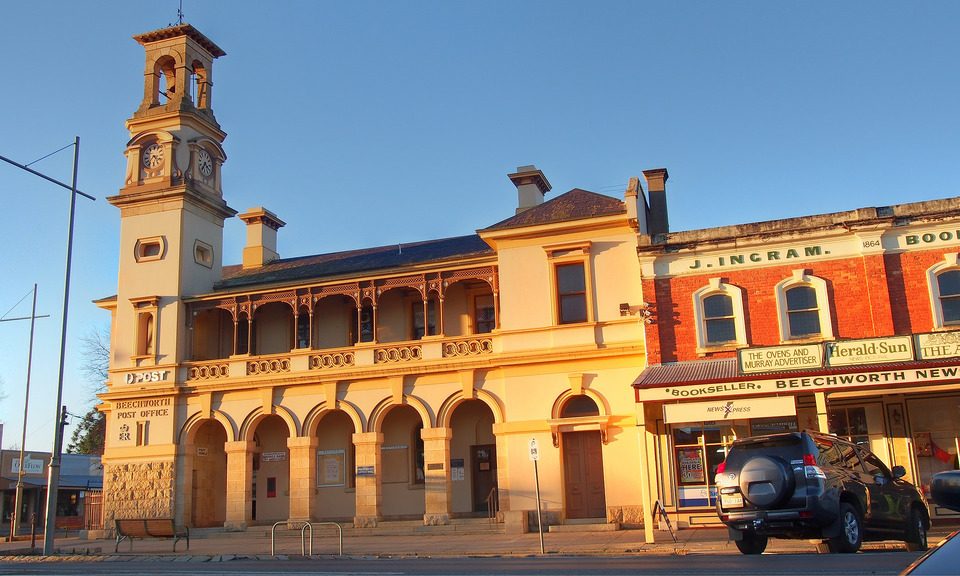Independent Public Schools In WA….Co-Ops In The UK
Smart Phone Taxi Booking App – Disruptive, But Better?
May 25, 2014Farm Technology Opportunity: Some Innovating, Some ‘Need Vision’
May 29, 2014It seems WA parents are voting with their feet in support of Independent Public Schools, where principals have their own budget and can hire and fire teachers. The ABC’s 7.30 gives a run down here.
This type of school autonomy is similar to other ‘market-based reform initiatives‘, such as Charter Schools in the US and the Academy model in England. The Conversation says:
“Underpinning these reforms is a belief (often infused with a good measure of ideological bias) that freeing schools to some extent from centralised control and bureaucracy will allow time and resources to be more effectively directed.”
But Let’s Consider The UK Co-Op School Success Story
I have had excellent feedback from Dr Jacques Boulet, founder of Melbourne’s Borderlands Co-operative, who has witnessed the UK system firsthand and experienced the students’ pride and involvement in their co-op schools.
The Guardian,considering this system, says the movement began with:
“Blair’s 2006 Education and Inspections Act. This introduced the idea of trust schools, which were trumpeted as “independent state schools”; they allowed for a loosening of the ties between local authorities and schools.
While they would remain funded by local authorities, schools would become charitable trusts, with other key features, including establishing long-term partnerships with outside groups such as local businesses and charities who would then become involved with the school’s governance and leadership.
The smart thinkers at the Co-operative College spotted that this presented a golden opportunity to develop a co-operative-based model for trust schools. The result was that in 2008 Reddish Vale technology college in Stockport became the first ground-breaking co-operative trust school in England, which heralded the current revolution in co-op led education.”
What Defines A Co-Op School?
Two features define a co-op school and together they form a community-based mutual organisation:
1. The co-op values of democracy, equity and fairness are applied right across the school.
2. A governance model directly engages key stakeholders through membership of the trust that includes, parents and carers, staff, the local community and the pupils themselves.
It is the governance model that puts the school right at the heart of local communities, which then have direct input into how their school is run.
The Benefits Of A Co-Op School
Some co-op schools see direct benefits in terms of their learning and development, others see the co-op trust model as offering practical benefits, allowing schools to collaborate, pool resources and save money. David Boston, in charge of the Schools Co-operative Society which acts as a trade body for co-op schools, says:
“We’re finding that the most enthusiastic supporters of these ‘co-op clusters’ are primary schools who are now converting to co-op trust status in large numbers..
They want to keep local relationships and networks together, plus there are capacity issues around sharing resources, skills and knowledge.”
The School Trust can act as a microcosm of a local authority, providing a multi-agency support team for each child:
- a consultant educational pyschologist
- attendance improvement officer
- family outreach worker
“There’s a massive desire for many people working within the education profession for a values-driven ethical model for schooling.”
The teachers’ union says:
“Collaboration and co-operation is in the best interests of all children and young people.”
A Welcome Turnaround
The Lipson Community College, in Plymouth, now the Lipson Co-operative Academy, was named (and shamed) as one of the UK’s worst performing schools in 2008, but the school’s head teacher can say:
“After just four years we’re now seeing tremendous results and it’s having a positive impact on every aspect of school performance from behaviour and results to attendance. Our figures in all these areas are now above the national average. We’re very pleased.”
Let’s keep this conversation going..


